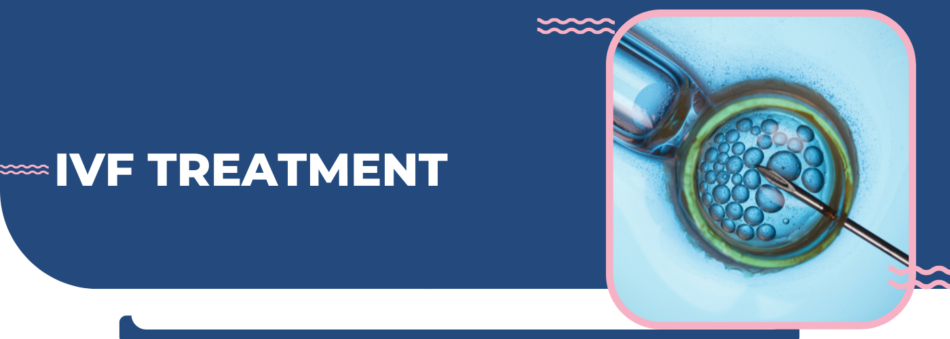For many individuals and couples, the journey toward parenthood may involve exploring assisted reproductive technologies (ART). Among these options, In Vitro Fertilization (IVF) is one of the most well-established and widely utilized methods. In Dallas, a city renowned for its advanced healthcare infrastructure, fertility clinics provide cutting-edge IVF treatments tailored to meet the diverse needs of patients. This article offers a comprehensive guide to IVF treatment in Dallas, detailing the process, costs, success rates, and how to choose the right clinic.
Understanding IVF Treatment
IVF is a multi-step process designed to assist with conception by facilitating fertilization outside the body. The main steps involved are:
- Ovarian Stimulation: Hormonal medications stimulate the ovaries to produce multiple eggs.
- Egg Retrieval: A minimally invasive procedure collects eggs from the ovaries.
- Fertilization: The retrieved eggs are fertilized with sperm in a laboratory to create embryos.
- Embryo Transfer: A selected embryo is transferred to the uterus for implantation.
- Pregnancy Test: Approximately two weeks after the transfer, a test confirms whether the procedure was successful.
Why Choose IVF?
IVF is often recommended for individuals and couples facing:
- Blocked or damaged fallopian tubes
- Male factor infertility (e.g., low sperm count or motility)
- Endometriosis
- Unexplained infertility
- Advanced maternal age
- Genetic concerns requiring embryo screening
IVF Costs in Dallas
The cost of IVF treatment varies depending on the clinic and the specific services required. On average, a single cycle of IVF in Dallas ranges from $12,000 to $15,000. This estimate typically includes:
- Initial consultations and diagnostic tests
- Ovarian stimulation medications
- Egg retrieval and fertilization
- Embryo culture and transfer
Additional Costs
Patients should also budget for ancillary services, which may include:
- Medications: $3,000 to $5,000
- Genetic testing (PGT-A or PGT-M): $3,000 to $5,000
- Embryo freezing and storage: $500 to $1,000 annually
- Donor eggs or sperm: $5,000 to $10,000 or more
Many Dallas clinics offer financing plans or multi-cycle packages to make treatment more affordable. Additionally, some insurance plans may cover portions of the cost, so it’s essential to verify benefits with your provider.
Success Rates of IVF in Dallas
The success of IVF depends on several factors, including the patient’s age, fertility diagnosis, and the quality of the clinic. Nationally, the average live birth rate per IVF cycle for women under 35 is about 50%, with rates decreasing as age increases. Dallas clinics often report competitive success rates, leveraging advanced technology and experienced staff to optimize outcomes.
Choosing a Fertility Clinic in Dallas
Selecting the right clinic is a crucial step in your IVF journey. Here are some factors to consider:
1. Clinic Reputation
- Look for clinics with high patient satisfaction and positive reviews via Dallas ivf patient portal.
- Research success rates through the Society for Assisted Reproductive Technology (SART) or the Centers for Disease Control and Prevention (CDC).
2. Services Offered
- Ensure the clinic provides comprehensive fertility services, including diagnostics, IVF, egg freezing, and donor programs.
- Ask about advanced techniques like Intracytoplasmic Sperm Injection (ICSI) or Preimplantation Genetic Testing (PGT).
3. Expertise and Credentials
- Verify the credentials and experience of the reproductive endocrinologists and embryologists.
- Consider clinics that invest in continuing education and cutting-edge technology.
4. Personalized Care
- Choose a clinic that values patient-centered care, offering clear communication and emotional support throughout the process.
5. Accessibility and Convenience
- Consider the clinic’s location, office hours, and availability for appointments.
Advancements in IVF Technology
Dallas fertility clinics are at the forefront of innovation, employing techniques that enhance success rates and patient experiences. Some notable advancements include:
- Time-Lapse Imaging: Provides continuous monitoring of embryos for better selection.
- Minimal Stimulation IVF (Mini-IVF): Uses lower doses of medication, reducing costs and risks.
- Frozen Embryo Transfers (FET): Allows for optimized timing and preparation of the uterus.
- Personalized Medication Protocols: Tailored to each patient’s hormonal response.
Support Services for IVF Patients
Navigating fertility treatment can be emotionally and physically challenging. Many Dallas clinics offer support services, including:
- Counseling and Therapy: Licensed therapists specialize in fertility-related concerns.
- Support Groups: Connecting with others undergoing similar experiences.
- Nutritional Counseling: Guidance on optimizing diet for fertility.
- Acupuncture: Complementary therapy to improve blood flow and reduce stress.
Alternatives and Complementary Options
If IVF isn’t the right fit, Dallas clinics also provide alternatives such as:
- Intrauterine Insemination (IUI): Less invasive and more affordable than IVF.
- Egg Freezing: Preserving fertility for future use.
- Donor Programs: Access to donor eggs or sperm for diverse family-building needs.
- Surrogacy: An option for individuals unable to carry a pregnancy.
Tips for a Successful IVF Journey
- Educate Yourself: Learn about the IVF process, costs, and potential outcomes.
- Communicate Openly: Maintain honest communication with your partner and healthcare team.
- Prioritize Self-Care: Focus on physical and mental health throughout the process.
- Stay Organized: Keep track of appointments, medications, and documentation.
- Be Patient: Understand that success may require multiple cycles and adjustments.
Conclusion
IVF treatment in Dallas offers hope and solutions for individuals and couples facing infertility challenges. With top-tier clinics, advanced technology, and a commitment to personalized care, Dallas is a prime destination for those embarking on their fertility journey. By understanding the process, costs, and factors involved, prospective parents can make informed decisions and take confident steps toward achieving their dream of starting or expanding their family.







